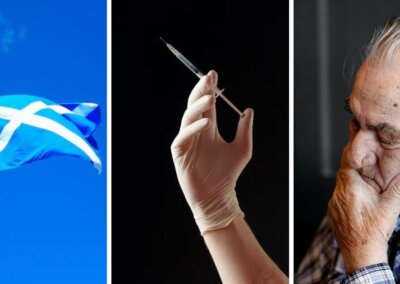A new poll shows that a majority of women who take a position on where abortion pills should be taken support an end to ‘DIY’ at-home abortion schemes and want to ensure that abortion pills should only be taken under medical supervision at a clinic.
According to the latest YouGov polling, when asked whether the two pills used in a medical abortion should be taken at home without medical supervision or in a clinic with medical supervision, 12% of women didn’t know their position on the matter; however, of those who did take a position, 51% thought medical abortions should only happen in a clinic under medical supervision while less than 49% supported continuing to allow abortion pills to be taken at home without in-person medical supervision.
Abortions have increased since ‘DIY’ home abortions allowed
The abortion provisions that allowed abortion pills to be taken outside of a clinical setting were introduced at the end of March 2020 as a temporary measure as part of the Government’s response to COVID-19. While this was intended to be a temporary measure, the Westminster Parliament made ‘DIY’ home abortion a permanent feature of the law in March 2022.
The devolved parliament in Wales had already made ‘DIY’ home abortion permanent in February 2022 and Holyrood followed suit in May of the same year.
Since ‘DIY’ abortions were introduced in 2020, the abortion numbers have continued to increase each year. Over the first six months of 2022, there were almost 18,000 more abortions compared with the same time period over the previous year.
An increase in ambulance call-outs
Last year, following a Freedom of Information request to ambulance trusts in England, GB News found there had been a substantial increase in the number of women calling 999 in relation to abortion pills taken at home and an increase in ambulance dispatches.
They found that the number of call-outs relating to abortion increased in London from 93 in 2019 to 150 in 2020, a 61% increase; and in the South West, from 33 in 2019 to 74 in 2020, a 124% increase.
The ambulance trusts which responded to the FOI from GB News “show significant increases in the number of 999 calls from people concerned after taking abortion pills”. According to GB News, South East Coast Ambulance Service saw a 34% increase in 999 calls “from people concerned after taking abortion pills” from 2019 to 2020.
A similar FOI in Wales submitted by Darren Millar, Member of the Senedd for Clwyd West, revealed that ambulance call-outs to women who had completed a medical abortion at home had doubled since the change in regulations allowing both sets of pills to be taken at home.
Right To Life UK spokesperson Catherine Robinson said “It is no surprise that after two years of this DIY home abortion experiment there is strong support from women for ending these dangerous schemes tt. The documented increase in ambulance call-outs is no surprise given the lack of in-person medical assessment, and cases where women have had abortions without their consent, are, sadly, an entirely predictable outcome of this dangerous legislation”.












